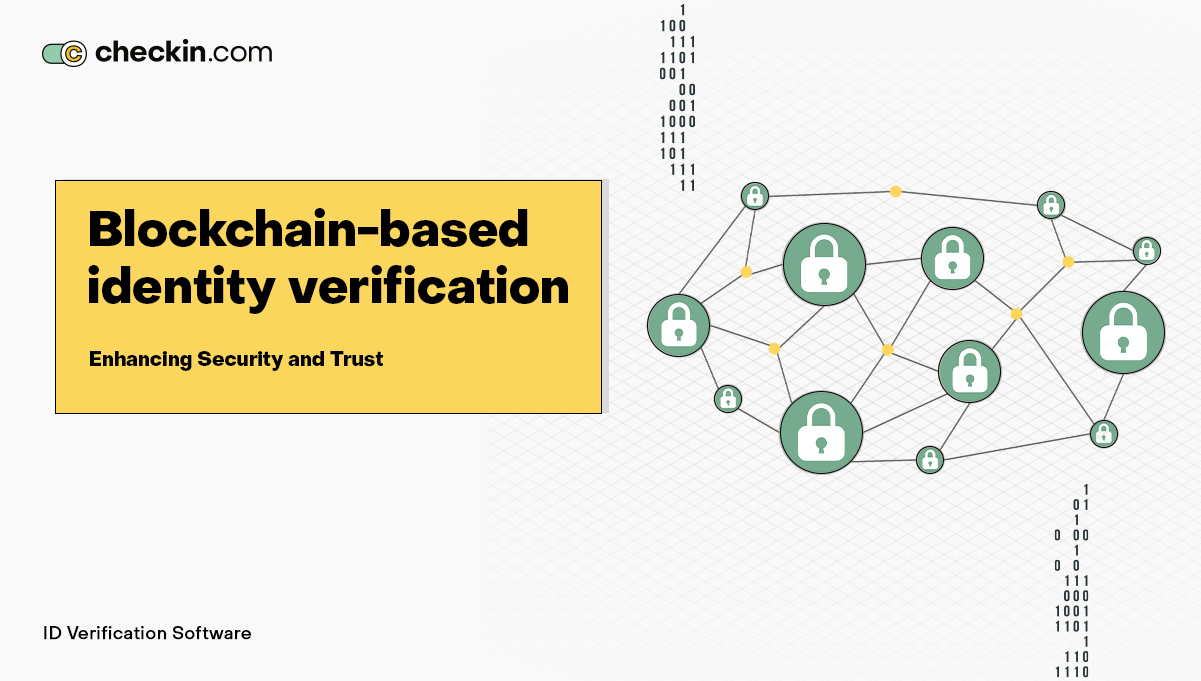
Blockchain-based Identity Verification: Enhancing Security and Trust
18 Jun 2023
In today’s digital landscape, ensuring secure and trustworthy identity verification is crucial. Blockchain technology has emerged as a game-changer, offering decentralized and tamper-resistant solutions for identity verification.
This article delves into the potential of blockchain-based identity verification systems, their advantages, real-world applications, and the challenges they face. Let’s explore the world of secure identity verification through blockchain!
Understanding Blockchain-based Identity Verification
Blockchain-based id verification service harnesses the power of decentralized blockchain technology to create transparent and secure systems for verifying and managing identities.
By distributing identity-related data across a network of computers, known as nodes, this approach eliminates the need for centralized authorities and enhances the security and integrity of identity verification processes.
How Blockchain-based Identity Verification Works
Blockchain-based identity verification ensures enhanced security and trust through two key mechanisms:
- Decentralized Identity Management: Instead of relying on a central authority, identity data is stored and distributed across multiple nodes in the blockchain network. This decentralization reduces the risk of single-point failures or vulnerabilities, ensuring greater resilience and security.
- Immutable and Tamper-Resistant Records: Once identity data is added to the blockchain, it becomes nearly impossible to alter or delete. The immutability of the blockchain ensures the integrity of identity-related records, making them tamper-resistant and providing an auditable history of an individual’s identity.
Advantages of Blockchain-based Identity Verification
Blockchain-based identity verification offers several advantages:
- Enhanced Security and Privacy: By decentralizing data storage and utilizing cryptographic algorithms, blockchain-based systems provide robust security measures, safeguarding user data and ensuring privacy.
- Reduction in Identity Fraud: The transparency and immutability of the blockchain make it significantly challenging for malicious actors to manipulate or forge identity records, reducing the risk of identity theft and fraud.
Real-World Applications of Blockchain-based Identity Verification
Blockchain-based identity verification has a wide range of applications across industries:
- Digital Identity Verification: Industries such as finance, healthcare, and e-commerce can utilize blockchain-based systems to verify digital identities securely. This streamlines processes and eliminates the need for repetitive identity verification.
- Cross-Border Identity Verification: Blockchain-based solutions simplify cross-border transactions and travel by providing secure and efficient identity verification that complies with regulatory requirements.
Challenges and Future Outlook
The adoption of blockchain-based identity verification faces certain challenges:
- Regulatory and Legal Considerations: Adhering to existing regulations and privacy laws is crucial to ensure compliance and protect user data.
- Scalability and Interoperability: Addressing scalability challenges and achieving interoperability between different blockchain networks are key factors for widespread adoption.
Conclusion
Blockchain-based identity verification systems offer decentralized and tamper-resistant solutions for secure identity verification. By leveraging transparency, immutability, and cryptographic algorithms, these systems enhance security, privacy, and trust.
Embrace the future of identity verification through blockchain and contribute to a more secure and trustworthy digital ecosystem.
FAQ
How does blockchain-based identity verification ensure data security?
Blockchain-based identity verification utilizes decentralized storage and cryptographic algorithms to enhance data security. By distributing identity data across multiple nodes and employing encryption techniques, the system ensures the privacy and integrity of user information.
Can blockchain-based identity verification be tampered with or hacked?
Blockchain technology provides a high level of security and immutability. Due to the decentralized nature of the blockchain network and the cryptographic algorithms used, tampering with or hacking the system is extremely difficult. The transparency and consensus mechanisms of the blockchain make it highly resistant to unauthorized modifications.
What are the benefits of using blockchain for identity verification?
Blockchain-based identity verification offers several benefits, including enhanced security, privacy, and trust. It reduces the risk of identity fraud, streamlines verification processes, and provides individuals with greater control over their digital identities. Moreover, it eliminates the need for reliance on centralized authorities, ensuring a more decentralized and resilient system.
Are there any limitations to blockchain-based identity verification?
While blockchain-based identity verification offers significant advantages, it also faces challenges. Scalability and interoperability issues between different blockchain networks need to be addressed for widespread adoption. Additionally, regulatory and legal considerations must be taken into account to ensure compliance with existing laws and privacy regulations.